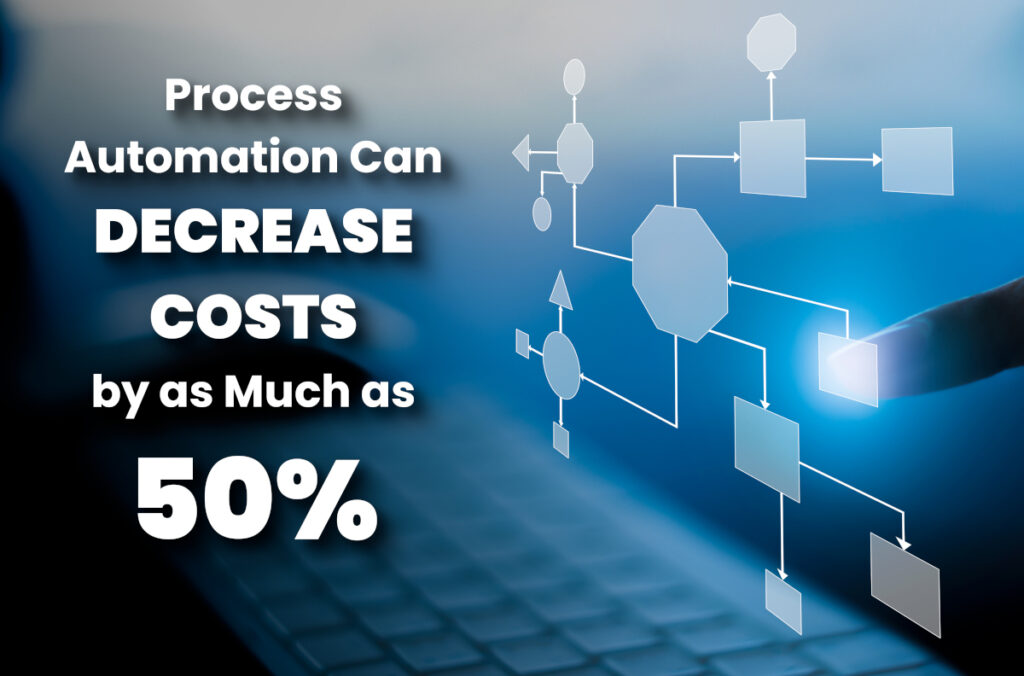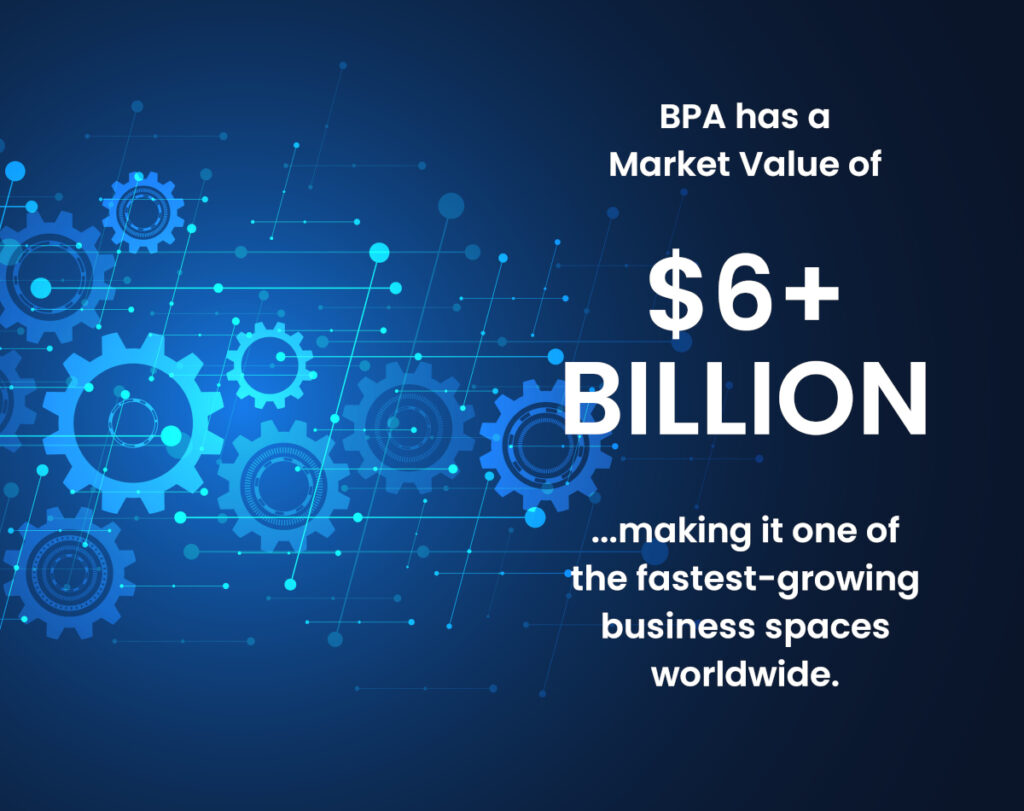Business process automation (BPA) entails the development of technology that’s used to perform various tasks within an organization’s workflow or process flow. The benefits of business process automation are significant, as companies enjoy greater consistency and efficiency. What’s more, human staff are freed to focus on higher-level tasks that are beyond what can be successfully automated.
Identifying Processes That Are Best Suited to Business Process Automation Solutions
Identifying the actual processes that need to be automated as part of a BPA development project is the first matter of business. Specifically, you must identify the actual steps that comprise each process. It’s a task that is often far more complex than many expect, particularly when those steps involve multiple software platforms and systems. Third-party platforms and systems can make for an even more challenging BPA project. A thorough BPA assessment and evaluation is critical so as to avoid the most significant business process automation risks.

To be a good candidate for business process automation, the process itself must be consistently repeatable. But even the most consistent process may require some form of evaluation and decision-making. In this case, BPA solutions may involve machine learning and artificial intelligence technology. Machine learning-driven AI are commonly utilized in the case of more complex processes, especially when those processes require some form of evaluation and decision-making.
Identifying the Steps for Implementing and Deploying a Business Process Automation Solution
As an organization prepares to deploy their business process automation solutions, it’s important to take advantage of the opportunity to streamline and optimize the steps in those processes. Over time, as circumstances change, processes tend to become convoluted, bogged down by inefficiency. As you map out the steps in each process, the inefficiencies tend to become clear and apparent.
 As you’re evaluating the processes that will be automated, take the time to work with your consultant and BPA development company to identify opportunities for process improvement. Work-arounds can be eliminated. Steps may be rearranged, condensed or streamlined. It’s a chance to improve and optimize processes, resulting in better overall efficiency and an even greater ROI.
As you’re evaluating the processes that will be automated, take the time to work with your consultant and BPA development company to identify opportunities for process improvement. Work-arounds can be eliminated. Steps may be rearranged, condensed or streamlined. It’s a chance to improve and optimize processes, resulting in better overall efficiency and an even greater ROI.
Preparing Your Staff for a Business Process Automation Solutions Deployment
A process automation project can have a significant impact on a company’s employees and you want that impact to be a positive one. It’s important that staff members are well-informed and prepared for what it all means for their workflow, role and responsibilities. Consider the following steps.
-
-
- Identify Who Will Be Affected – Identify which employees and roles will be impacted by the business process automations. The nature of an individual’s role and responsibilities can change rather dramatically and as such, it’s vital that they’re kept informed and involved as part of the process.
- Determine the Nature of the Impact – How will each employee be affected in their roles within the organization? How will their duties and responsibilities change? How will their workflow and workplace priorities change?
- Develop a Plan for Each Position / Role – Once you have determined how the new process automations will impact the staff in each affected role or position, it’s time to develop a plan for implementation, deployment and beyond. You must determine what changes will be necessary to ease the transition, while simultaneously minimizing any disruption. It’s also important to develop a plan for the long-term, including updated descriptions of roles and responsibilities.
-
Do I Need a Business Process Automation Consultant?
Business process automation consultants — also known as BPA consultants — are typically engaged at the beginning of the project, before any process automations have been developed. In fact, a BPA development company may offer consulting services in addition to developing the actual process automation solutions.
A business process automation consultant plays an essential role that’s critical for ensuring success with this sort of project. Through the consulting process, an organization can glean useful insights that allow for the development of highly-efficient and profit-driving process automations. A BPA consultant will examine a few of the following areas.
-
-
- Improving productivity by identifying the back-end business processes that are best-suited to automation.
- Reviewing the processes that will be automated and identifying the steps, involved systems, etc.
- Developing an implementation and deployment plan to ensure a smooth transition and rollout of the new BPA solutions.
- Creating a system for data collection and reporting for the business process automation solutions.
- Evaluating the impact on employees, their workload and their responsibilities.
- Developing a plan for the employees who will be affected by process automations, including the identification of new and changing responsibilities for various positions within the organization.
-
Consultation and evaluation are both essential in the recipe for success with a BPA deployment. Although it generally doesn’t matter whether you hire a BPA consultant independent from your development partner or take advantage of a BPA development company’s consulting services.
At 7T, we consult extensively with clients as part of the development process, using the resulting insights to develop business process automation solutions that will deliver a healthy ROI through improved efficiency and productivity. The consulting process typically begins with the completion of a business requirements document or BRD. This document articulates the client’s current situation and goals for the future (amongst other things.) Here is a look at what’s included in a BRD.
-
-
- Business needs and objectives
- Client expectations and vision for the project
- Project scope and nature
- Possible challenges and roadblocks
- Short-term and long-term goals
-
These are a few of the many topics that are explored in a business requirements document. Once completed and reviewed, 7T will come back to the client with a timeframe and plan for the development of their business process automation solutions. And they will be just that — solutions to a problem or area of inefficiency. A problem → solution approach to development typically leads to a more robust ROI. We also maintain a focus on the client’s business strategy, allowing these objectives to guide various aspects of the project.
Hiring a Top Dallas BPA Development Company for Your Project
Our world-class team of business process automation developers will work to identify challenges within your organization; then, we’ll create a value-generating solution with innovative technologies, including machine learning and AI. This problem → solution approach to BPA development has the potential to bring about exceptional results, generating new, profitable opportunities.
7T’s Digital Transformation development team is guided by the approach of “Digital Transformation Driven by Business Strategy.” As such, the 7T development team works with company leaders who are seeking to solve problems and drive ROI through Digital Transformation with innovative business solutions such as process automation and multimodal machine learning-powered AI implementations. 7T has offices in Dallas, Houston, and Charlotte, NC, but our clientele spans the globe. If you’re ready to learn more about business process automation solutions, contact 7T today.








